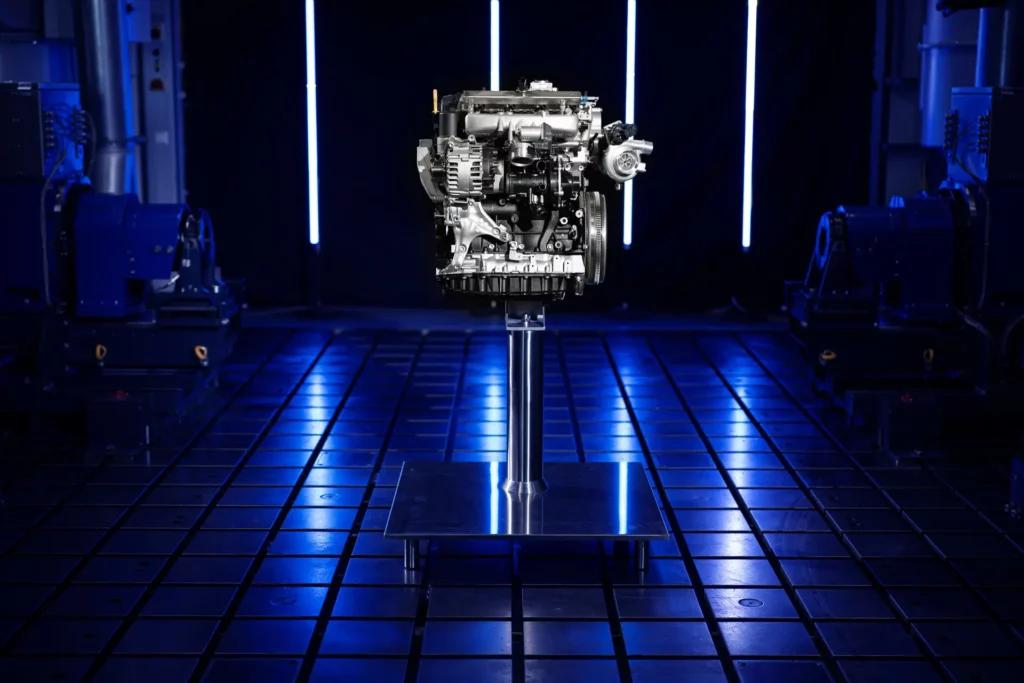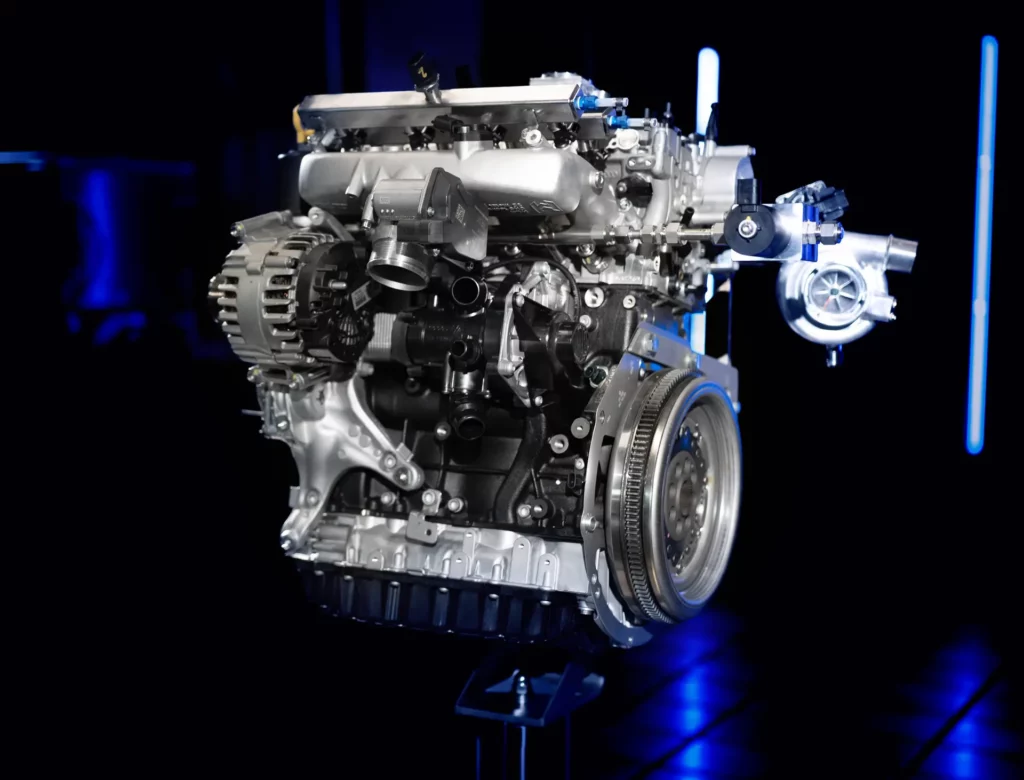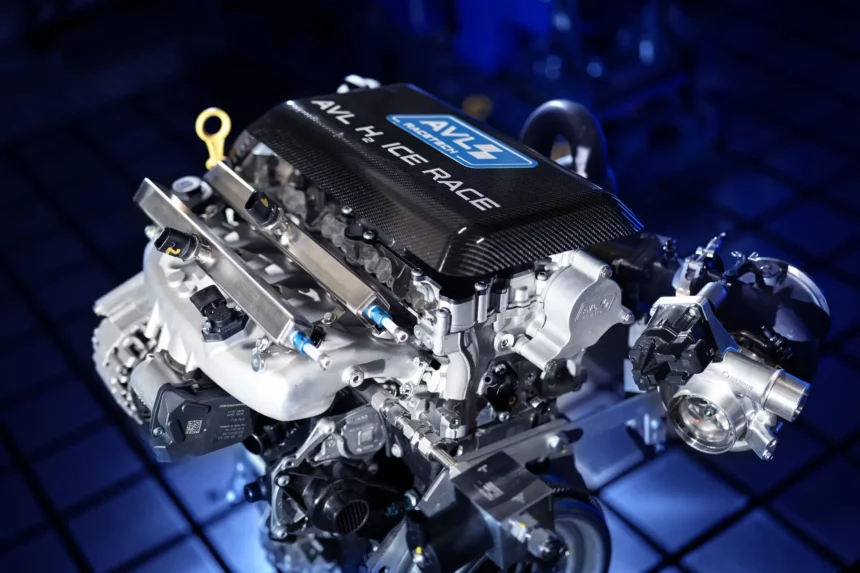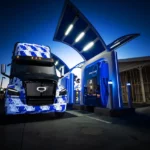AVL RACETECH, the motorsport arm of Austrian mobility tech firm AVL, has revealed a revolutionary hydrogen-powered two-liter turbo engine, setting a new benchmark for sustainable motorsport. The engine, boasting a staggering 410 horsepower (302 kW) on the testbed, defies conventional expectations of hydrogen engine performance, potentially reshaping the future of racing, According to a company announcement.
Traditionally, hydrogen combustion engines have struggled with performance due to lean-burn combustion. However, AVL RACETECH, in collaboration with Hungarian research group HUMDA Lab, has shattered this notion with an innovative Port Fuel Injection (PFI) water injection system. This technology injects water into the engine’s intake air, ensuring stoichiometric combustion and eliminating the limitations of lean-burn engines.
Impressive Performance Metrics
The result is astounding—410 horsepower and 500 Newton-meters of torque between 3,000 and 4,000 RPM, with a specific power density of approximately 205 hp per liter (150 kW per liter). AVL’s breakthrough addresses the performance gap associated with hydrogen engines, making it a frontrunner in the motorsport arena.

Before testing, AVL conducted rigorous simulations, accurately forecasting the engine’s remarkable performance metrics. Project leader Paul Kapus commented, “We are proud to have been able to validate those figures on the testbed.” This validation marks a significant milestone in AVL’s journey towards sustainable motorsport.
| Specifications | Value |
|---|---|
| Engine Type | Hydrogen-powered, turbocharged |
| Displacement | 2.0 liters |
| Horsepower | 410 horsepower (302 kW) |
| Torque | 500 Newton-meters |
| RPM Range | 3,000 – 4,000 RPM |
| Specific Power Density | Approximately 205 hp per liter (150 kW per liter) |
| Fuel System | Port Fuel Injection (PFI) with water injection |
| Emissions | Zero carbon emissions |
| Performance Milestone | Breakthrough in hydrogen combustion technology |
ALSO READ: BMW says Goodbye to Electric Cars; it has now Solved the Problem of Hydrogen Engines
Ellen Lohr, Director of Motorsport at AVL, expressed excitement about the engine’s potential, emphasizing AVL RACETECH’s commitment to leading motorsport into a sustainable future. “The goal of AVL RACETECH is to lead motorsport into a sustainable future. With the development of the first racing engine under our name – a high-performance H₂-ICE – we have taken another step closer to achieving this vision.” ” stated Lohr.
Road to Real-World Testing
Following the testbed success, AVL’s next phase involves integrating the 2.0-liter hydrogen turbo engine into a race car for real-world performance evaluation. This step could catalyze a transformative shift in motorsport technology towards a zero-emission future.

“The results achieved by our H2 racing engine confirm that we can deliver an extremely competitive package with this technology,” said AVL motorsport director Ellen Lohr after testing. “The goal of AVL Racetech is to lead motorsport into a sustainable future. With the development of the first racing engine developed under our name, we have taken another step closer to achieving this vision.”
While electric vehicles dominate recent innovations, AVL’s hydrogen combustion engine offers a compelling alternative, emitting zero carbon emissions and aligning with sustainability goals. This technology presents a cost-effective solution for motorsport teams transitioning from gasoline engines, preserving the classic mechanical ambiance of motorsport while reducing environmental impact.
AVL RACETECH’s hydrogen-powered 2.0-liter turbo engine heralds a promising future for sustainable motorsport, potentially revolutionizing the industry’s landscape while upholding high-performance standards. As the engine gears up for real-world testing on the racetrack, it signifies a crucial step towards a cleaner, greener era in motorsport.









